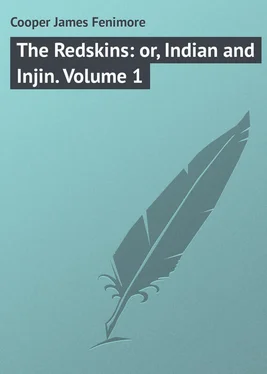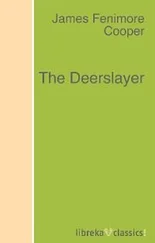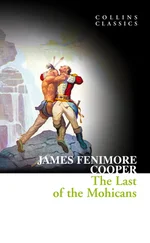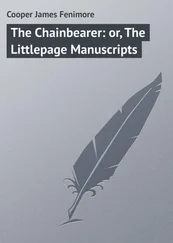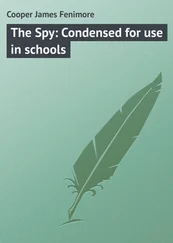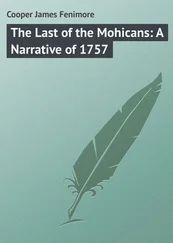James Cooper - The Redskins - or, Indian and Injin. Volume 1
Здесь есть возможность читать онлайн «James Cooper - The Redskins - or, Indian and Injin. Volume 1» — ознакомительный отрывок электронной книги совершенно бесплатно, а после прочтения отрывка купить полную версию. В некоторых случаях можно слушать аудио, скачать через торрент в формате fb2 и присутствует краткое содержание. Жанр: foreign_prose, на английском языке. Описание произведения, (предисловие) а так же отзывы посетителей доступны на портале библиотеки ЛибКат.
- Название:The Redskins: or, Indian and Injin. Volume 1
- Автор:
- Жанр:
- Год:неизвестен
- ISBN:нет данных
- Рейтинг книги:4 / 5. Голосов: 1
-
Избранное:Добавить в избранное
- Отзывы:
-
Ваша оценка:
- 80
- 1
- 2
- 3
- 4
- 5
The Redskins: or, Indian and Injin. Volume 1: краткое содержание, описание и аннотация
Предлагаем к чтению аннотацию, описание, краткое содержание или предисловие (зависит от того, что написал сам автор книги «The Redskins: or, Indian and Injin. Volume 1»). Если вы не нашли необходимую информацию о книге — напишите в комментариях, мы постараемся отыскать её.
The Redskins: or, Indian and Injin. Volume 1 — читать онлайн ознакомительный отрывок
Ниже представлен текст книги, разбитый по страницам. Система сохранения места последней прочитанной страницы, позволяет с удобством читать онлайн бесплатно книгу «The Redskins: or, Indian and Injin. Volume 1», без необходимости каждый раз заново искать на чём Вы остановились. Поставьте закладку, и сможете в любой момент перейти на страницу, на которой закончили чтение.
Интервал:
Закладка:
On our arrival from England, we remained an entire season at Paris, all that time rubbing the specks off the diamond, when my uncle suddenly took it into his head that we ought to see the East. He had never been further than Greece, himself; and he now took a fancy to be my companion in such an excursion. We were gone two years and a half, visiting Greece, Constantinople, Asia Minor, the Holy Land, Petra, the Red Sea, Egypt quite to the second cataracts, and nearly the whole of Barbary. The latter region we threw in, by way of seeing something out of the common track. But so many hats and travelling-caps are to be met with, now-a-days, among the turbans, that a well-mannered Christian may get along almost anywhere without being spit upon. This is a great inducement for travelling generally, and ought to be so especially to an American, who, on the whole, incurs rather more risk now of suffering this humiliation at home, than he would even in Algiers. But the animus is everything in morals.
We had, then, been absent two years and a half from Paris, and had not seen a paper or received a letter from America in eighteen months, when we drove through the barrier. Even the letters and papers received or seen previously to this last term, were of a private nature, and contained nothing of a general character. The "twenty millions" – it was only the other day they were called the "twelve millions" – but, the "twenty millions," we knew, had been looking up amazingly after the temporary depression of the moneyed crisis it had gone through; and the bankers had paid our drafts with confidence, and without extra charges, during the whole time we had been absent. It is true, Uncle Ro, as an experienced traveller, went well fortified in the way of credit – a precaution by no means unnecessary with Americans, after the cry that had been raised against us in the old world.
And here I wish to say one thing plainly, before I write another line. As for falling into the narrow, self-adulatory, provincial feeling of the American who has never left his mother's apron-string, and which causes him to swallow, open-mouthed, all the nonsense that is uttered to the world in the columns of newspapers, or in the pages of your yearling travellers, who go on "excursions" before they are half instructed in the social usages and the distinctive features of their own country, I hope I shall be just as far removed from such a weakness, in any passing remark that may flow from my pen, as from the crime of confounding principles and denying facts in a way to do discredit to the land of my birth and that of my ancestors. I have lived long enough in the "world," not meaning thereby the south-east corner of the north-west township of Connecticut, to understand that we are a vast way behind older nations, in thought as well as deed, in many things; while, on the opposite hand, they are a vast way behind us in others. I see no patriotism in concealing a wholesome truth; and least of all shall I be influenced by the puerility of a desire to hide anything of this nature, because I cannot communicate it to my countrymen without communicating it to the rest of the world. If England or France had acted on this narrow principle, where would have been their Shakspeares, their Sheridans, their Beaumonts and Fletchers, and their Molieres! No, no! great national truths are not to be treated as the gossiping surmises of village crones. He who reads what I write , therefore, must expect to find what I think of matters and things, and not exactly what he may happen to think on the same subjects. Any one is at liberty to compare opinions with me; but I ask the privilege of possessing some small liberty of conscience in what is, far and near, proclaimed to be the only free country on the earth. By "far and near," I mean from the St. Croix to the Rio Grande, and from Cape Cod to the entrance of St. Juan de Fuca; and a pretty farm it makes, the "interval" that lies between these limits! One may call it "far and near" without the imputation of obscurity, or that of vanity.
Our tour was completed, in spite of all annoyances; and here we were again, within the walls of magnificent Paris! The postilions had been told to drive to the hotel, in the rue St. Dominique; and we sat down to dinner, an hour after our arrival, under our own roof. My uncle's tenant had left the apartment a month before, according to agreement; and the porter and his wife had engaged a cook, set the rooms in order, and prepared everything for our arrival.
"It must be owned, Hugh," said my uncle, as he finished his soup that day, "one may live quite comfortably in Paris, if he possess the savoir vivre . Nevertheless, I have a strong desire to get a taste of native air. One may say and think what he pleases about the Paris pleasures, and the Paris cuisine , and all that sort of things; but "home is home, be it ever so homely." A 'd'Inde aux truffes' is capital eating; so is a turkey with cranberry sauce. I sometimes think I could fancy even a pumpkin pie, though there is not a fragment of the rock of Plymouth in the granite of my frame."
"I have always told you, sir, that America is a capital eating and drinking country, let it want civilization in other matters, as much as it may."
"Capital for eating and drinking, Hugh, if you can keep clear of the grease, in the first place, and find a real cook, in the second. There is as much difference between the cookery of New England, for instance, and that of the Middle States, barring the Dutch, as there is between that of England and Germany. The cookery of the Middle States, and of the Southern States, too, though that savours a little of the West Indies – but the cookery of the Middle States is English, in its best sense; meaning the hearty, substantial, savoury dishes of the English in their true domestic life, with their roast-beef underdone, their beefsteaks done to a turn, their chops full of gravy, their mutton-broth, legs-of-mutton, et id omne genus . We have some capital things of our own, too; such as canvass-backs, reedbirds, sheepshead, shad, and blackfish. The difference between New England and the Middle States is still quite observable, though in my younger days it was patent . I suppose the cause has been the more provincial origin, and the more provincial habits, of our neighbours. By George! Hugh, one could fancy clam-soup just now, eh!"
"Clam-soup, sir, well made, is one of the most delicious soups in the world. If the cooks of Paris could get hold of the dish, it would set them up for a whole season."
"What is 'crême de Bavière,' and all such nick-nacks, boy, to a good plateful of clam-soup? Well made, as you say – made as a cook of Jennings used to make it, thirty years since. Did I ever mention that fellow's soup to you before, Hugh?"
"Often, sir. I have tasted very excellent clam-soup, however, that he never saw. Of course you mean soup just flavoured by the little hard-clam – none of your vulgar potage à la soft-clam?"
"Soft-clams be hanged! they are not made for gentlemen to eat. Of course I mean the hard-clam, and the small clam, too —
Here's your fine clams,
As white as snow;
On Rockaway
These clams do grow.
The cries of New York are quite going out, like everything else at home that is twenty years old. Shall I send you some of this eternal poulet à la Marengo? I wish it were honest American boiled fowl, with a delicate bit of shoat-pork alongside of it. I feel amazingly homeish this evening, Hugh!"
"It is quite natural, my dear uncle Ro; and I own to the 'soft impeachment' myself. Here have we both been absent from our native land five years, and half that time almost without hearing from it. We know that Jacob" – this was a free negro who served my uncle, a relic of the old domestic system of the colonies, whose name would have been Jaaf, or Yop, thirty years before – "has gone to our banker's for letters and papers; and that naturally draws our thoughts to the other side of the Atlantic. I dare say we shall both feel relieved at breakfast to-morrow, when we shall have read our respective despatches."
Читать дальшеИнтервал:
Закладка:
Похожие книги на «The Redskins: or, Indian and Injin. Volume 1»
Представляем Вашему вниманию похожие книги на «The Redskins: or, Indian and Injin. Volume 1» списком для выбора. Мы отобрали схожую по названию и смыслу литературу в надежде предоставить читателям больше вариантов отыскать новые, интересные, ещё непрочитанные произведения.
Обсуждение, отзывы о книге «The Redskins: or, Indian and Injin. Volume 1» и просто собственные мнения читателей. Оставьте ваши комментарии, напишите, что Вы думаете о произведении, его смысле или главных героях. Укажите что конкретно понравилось, а что нет, и почему Вы так считаете.
